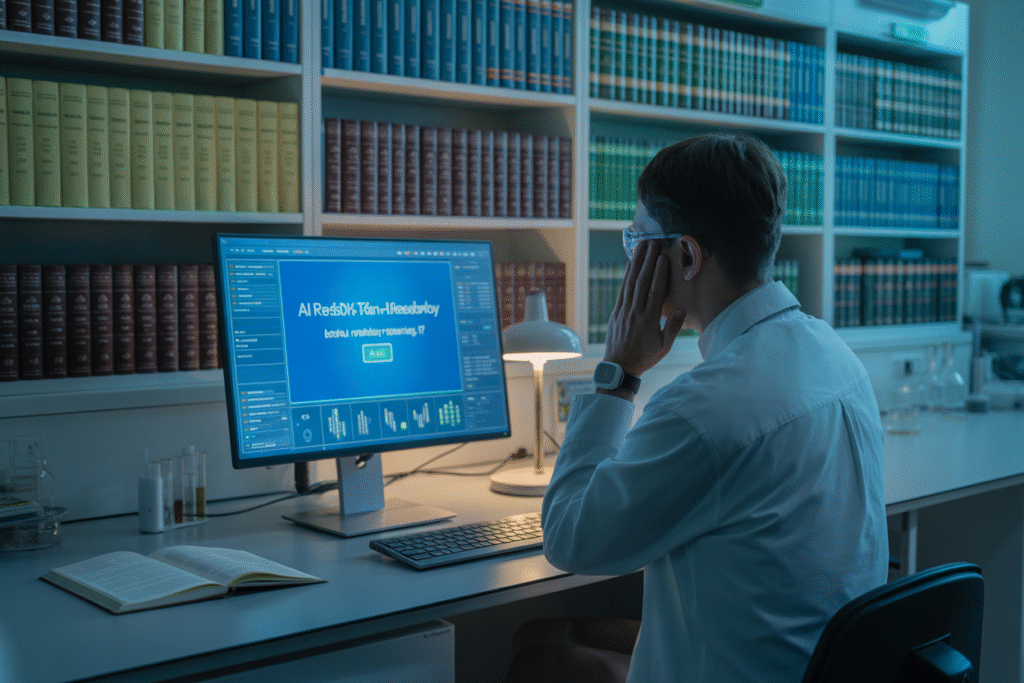Anthropic’s new safety filter quietly deletes CBRN knowledge before training even starts—sparking a fierce debate over who decides what we’re allowed to learn.
Imagine a world where the next breakthrough in cancer research is delayed because an AI model was trained to forget how certain molecules interact. That future may already be here. This morning, Anthropic revealed a sweeping new policy that scrubs chemical, biological, radiological and nuclear data from its training pipeline. The goal? Stop bad actors. The side effect? A potential lock on legitimate science. Let’s unpack what just happened—and why it matters to anyone who values both safety and freedom.
The Filter Nobody Saw Coming
At 9:17 a.m. GMT, Anthropic quietly updated its Responsible Scaling Policy. The change sounds harmless: a new “CBRN constitution” that tells Claude to ignore any document hinting at weaponizable science. No press release, no blog post—just a footnote in a research paper dated August 19, 2025.
The company claims the tweak causes “zero performance loss” on everyday tasks. Yet under the hood, terabytes of peer-reviewed chemistry papers, radiology datasets and nuclear-engineering manuals have been blacklisted. Researchers who rely on open models for drug discovery or climate modeling may soon find their favorite AI assistant suddenly clueless.
Critics call it corporate gatekeeping. Supporters call it common sense. Both sides agree on one thing: this is the first time a frontier lab has applied safety filters before training even begins, not after deployment.
Why Scientists Are Freaking Out
Picture a grad student in Prague who needs to model a new radiopharmaceutical. Yesterday, Claude could summarize the latest isotope studies. Today, it responds with a polite refusal. Multiply that by thousands of labs worldwide and you get a chilling effect on innovation.
Open-science advocates list three immediate risks:
• Slower medical breakthroughs when AI can’t access full literature
• Brain drain toward countries with looser AI regulations
• A new digital divide between institutions that can afford private data and those that can’t
Meanwhile, security experts argue the filter is porous anyway. Determined actors can still train smaller, uncensored models on leaked datasets. The only people truly inconvenienced, they say, are the honest ones.
The Ethics Chessboard
Who gets to decide where safety ends and censorship begins? Right now, the answer is a handful of Silicon Valley engineers. Anthropic’s CBRN constitution is not open for public comment, and the criteria remain proprietary.
This raises thorny questions:
1. Should a private company control global access to scientific knowledge?
2. Could today’s CBRN ban expand tomorrow to climate engineering or gene editing?
3. What happens when governments start demanding similar filters for topics they dislike?
History offers cautionary tales. In the 1970s, U.S. export controls on encryption stifled academic research for decades. More recently, social-media bans on “misinformation” have sometimes swept up legitimate public-health debates. Each precedent shows how well-intentioned restrictions can outgrow their original mission.
What Happens Next—and How to Speak Up
The policy is live, but the conversation is far from over. If you’re a researcher, consider these steps:
• Test your current workflows—see which queries now return refusals
• Document any research delays and share anonymized examples with professional societies
• Push for transparency by asking journals and funders to require open-model audits
For everyone else, the simplest action is to keep talking. Share this story, tag Anthropic, email your local representative. AI safety is too important to be decided in a vacuum.
Because here’s the twist: the same technology that can erase knowledge can also democratize it—if we demand the right safeguards. The window to shape those safeguards is closing fast. Make your voice heard before the next filter drops.
References
• Anthropic Responsible Scaling Policy Update – https://www.anthropic.com/news/responsible-scaling-policy-august-2025
• Original X discussion by @SmokeEx – https://x.com/SmokeEx/status/1959122436252725713
• Reuters on AI export controls – https://www.reuters.com/technology/ai-regulation-history-2025-08-22/


